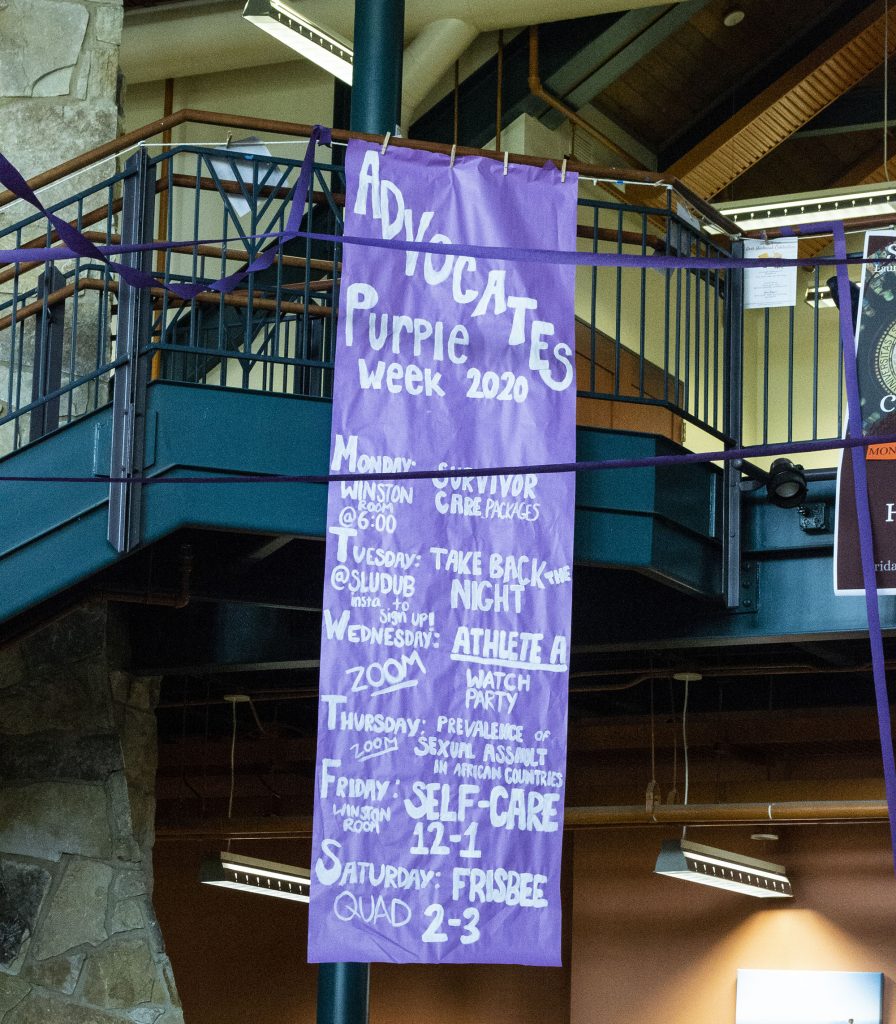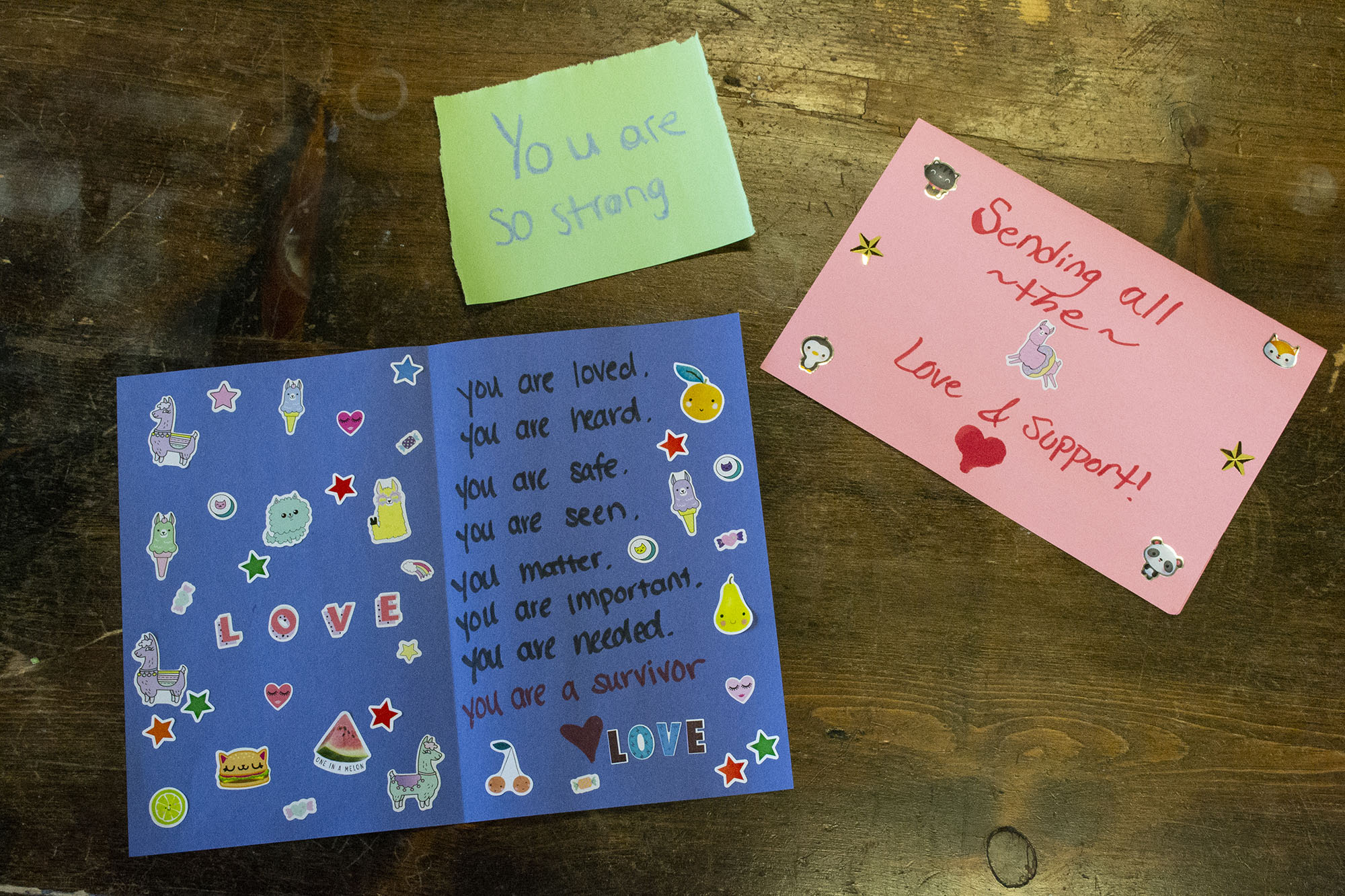Listen and Believe: Supporting Survivors Goes Beyond Purple Week
One in five women experience sexual assault while attending college, according to the “Campus Climate Survey Validation Study Final Technical Report from the Bureau of Justice Statistics Research and Development Series. And based on “The campus sexual assault (CSA) study: Final Report,” one and sixteen men are sexually assaulted during their college years. This one in five and one in sixteen is not merely a number or statistic. It quickly becomes our friends, family, peers and brief acquaintances.
In order to highlight the prevelance of sexual assault, domestic violence and stalking, each year the Advocates and Women’s Resource Center partner with various on-campus organizations, such as the Power House, African Student Union, Artist Guild and the Frisbee team, in the campus wide event known as Purple Week. The activities for this year included: survivor care packages, Take Back the Night, “Athlete A” watch party, a discussion on the prevalence of sexual assault in African countries, a self care event and frisbee on the Kirk Douglas Quad.
“I think [Purple Week] is really important for SLU because, unfortunately, the things I’ve listed (sexual assault, domestic violence and stalking) are a lot more common and prevalent than people may think,” says the Advocates Secretary Karina Bellavia ’22. She further explains that the term “survivor” can encompass “your professors or your peers or your classmate or the person you pass in the pub everyday.”

Bellavia again addresses the significance of events such as Purple Week when stating, “It’s important to understand these things so you can be a better friend and a better advocate.” But what can we do as a community at St. Lawrence University to better support survivors of sexual assault, domestic violence and staliking in addition to participating in Purple Week?
The President of Advocates, Megan Novack ’22, and Bellavia both emphasize that wholeheartedly believing survivors is vital when lending your support. “I think [believing survivors] is so significant because society tells survivors, and women in general, that ‘You’re not believed. You’re not a credible source,’” says Novack. And, she further states that the Advocates do their best to make sure that survivors are not alone and that they are believed.
Listening, if you’re mentally able to, in addition to believing is also key, says Bellavia. “That’s what people really ask,” she states. “They just want someone to believe them and support them.”
Bellavia also encourages members of the SLU community, if you’re able, to get Advocate trained. “Go to events that talk the hard stuff,” she states, “go and listen to people who have been through it and see what you can do for them.”



